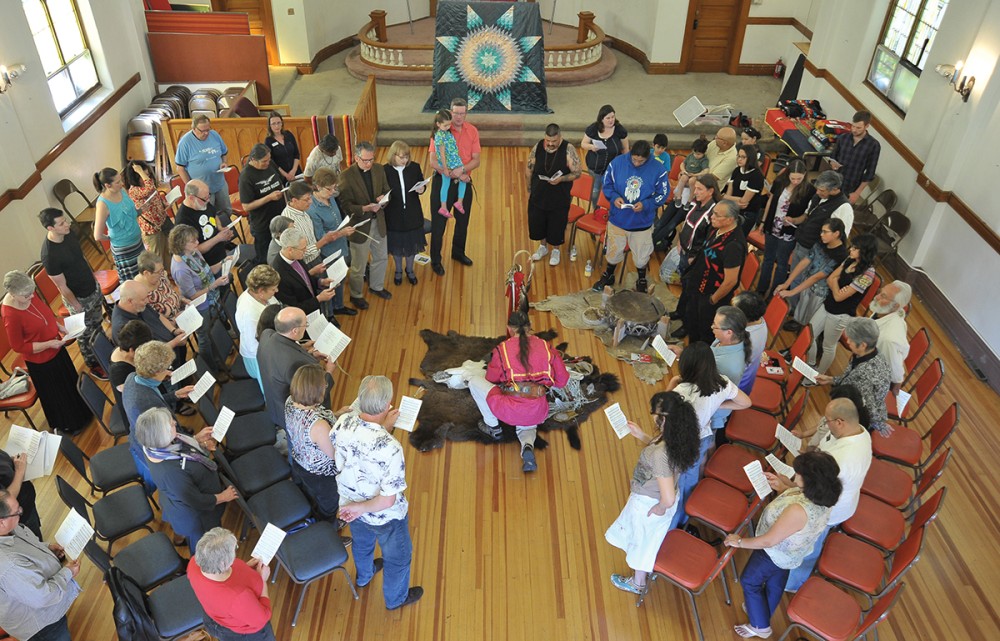A church returns land to American Indians
“This is decolonized land,” a young woman said. “This is a liberated zone.”

When I first saw the sturdy, red-brick building on the corner of West Fifth and Bannock Streets near downtown Denver, it reminded me of the Lutheran churches of my Midwest childhood. But the sign in front announced it as the home of the Four Winds American Indian Council, my destination for the evening.
I had come to Denver for Slow Food Nations, a yearly gathering of farmers, chefs, and food educators for a weekend of tastings, tours, and talks. The building was the site of a hoo’eibii3ihiit (literally “eating assembled”), the Arapaho word for feast. Descriptions of the event noted that: "Slow Food Nations and hoo’eibii3ihiit at Four Winds American Indian Council are located on lands of the Arapaho people. We acknowledge and honor the tribes of this area, Arapaho, Cheyenne, Comanche, Shoshone, and Ute, including Traditional Custodians, Elders past, present and future, and all of our Plant and Animal Relatives of the lands on which we live, work, play, and are nourished."
The hoo’eibii3ihiit was organized by Slow Food Turtle Island Association, which protects and promotes indigenous foods and the traditional knowledge related to them. During the many-course meal of Navaho-Churro lamb, black tepary beans, marbled Chinook salmon, quinoa, purslane, and much more, a young woman stood up.




